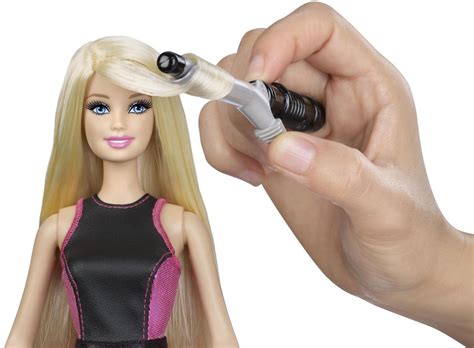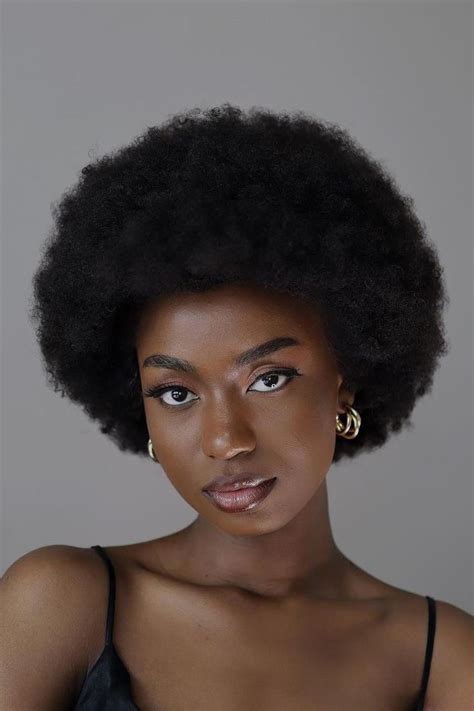Natural black African hairstyles are a testament to the rich cultural heritage and artistic expression that have shaped the African continent for centuries. These hairstyles are diverse, ranging from intricate braids and cornrows to elegant buns and afros, each carrying its own unique story and significance.

The Allure of Natural Black Hair
Black African hair is known for its versatility, texture, and resilience. It comes in a variety of types, from coarse and tightly coiled to fine and wavy. This range of textures allows for endless styling possibilities, making it a canvas for self-expression and creativity.
For many African women, embracing natural hair is a way to celebrate their heritage and reclaim their identity. It is a rejection of Eurocentric beauty standards that have long marginalized black hair and a reaffirmation of the beauty that lies within.
Diversity and Symbolism in African Hairstyles
African hairstyles are as varied as the cultures that have given birth to them. Each style holds a special meaning and reflects the traditions, beliefs, and social status of different ethnic groups.
-
Braids: Braids are some of the most popular and versatile African hairstyles. They can be worn in a variety of ways, from simple cornrows to elaborate box braids. Braids often represent strength, unity, and protection.
-
Cornrows: Cornrows are intricate braids that are tightly woven close to the scalp. They are a protective style that helps to prevent breakage and promote hair growth. Cornrows often have symbolic meanings, such as representing the pathways of life or the lineage of a family.
-
Buns: Buns are elegant and timeless hairstyles that can be worn by women of all ages. They are often adorned with beads, shells, or other embellishments. Buns represent femininity, maturity, and wisdom.
-
Afros: Afros are a symbol of natural hair pride and empowerment. They are large, voluminous hairstyles that embrace the natural texture and shape of black hair. Afros represent freedom, individuality, and a refusal to conform to societal norms.
The Importance of Hair Care for Natural Black Hair
Natural black hair requires special care to maintain its health and beauty. Here are some key tips for caring for natural black hair:
-
Moisturize regularly: Natural black hair is prone to dryness, so it’s essential to keep it well-moisturized. Use a moisturizing shampoo and conditioner, and apply a leave-in conditioner or hair oil to keep your hair hydrated.
-
Avoid heat styling: Heat styling tools can damage natural black hair, leading to breakage and frizz. Limit the use of heat tools, and use a heat protectant spray when you do use them.
-
Get regular trims: Regular trims help to remove split ends and keep your hair healthy. Aim to get a trim every 6-8 weeks.
-
Protect your hair from the sun: The sun’s UV rays can damage natural black hair, leading to dryness and fading. Wear a hat or scarf when you’re outdoors to protect your hair.
Natural Black African Hairstyles: A Source of Inspiration
Natural black African hairstyles have been a source of inspiration for artists, designers, and fashion icons around the world. Here are some examples of how natural black hairstyles have been embraced and celebrated:
-
In fashion: Natural black hairstyles have become increasingly popular on the runways and in fashion magazines. Designers are embracing the diversity and beauty of natural hair, showcasing it in high-fashion collections.
-
In art: Natural black hairstyles have been featured in paintings, sculptures, and other works of art. Artists use hairstyles to convey cultural identity, social commentary, and personal experiences.
-
In media: Natural black hairstyles have become more prominent in television, film, and music. More and more black actresses, singers, and other public figures are wearing their natural hair, breaking down stereotypes and promoting acceptance.
Conclusion
Natural black African hairstyles are a testament to the rich cultural heritage and artistic expression of the African continent. They are a celebration of diversity, beauty, and identity. By embracing natural hair, black women are not only reclaiming their history but also inspiring future generations to embrace their own unique beauty. So, let’s continue to appreciate and celebrate the splendor of natural black African hairstyles and all that they represent.
FAQs about Natural Black African Hairstyles
1. What is the best way to style natural black hair?
Natural black hair can be styled in a variety of ways, depending on the texture and desired look. Some popular styling techniques include braids, cornrows, buns, twists, and afros.
2. How do I care for natural black hair?
Natural black hair requires special care due to its texture and dryness. To keep it healthy, use moisturizing products, avoid heat styling, get regular trims, and protect it from the sun.
3. What are some of the challenges of having natural black hair?
Some challenges of having natural black hair include dryness, breakage, and frizz. However, these challenges can be overcome with proper hair care and protective styling techniques.
4. Why are natural black hairstyles important?
Natural black hairstyles are important for cultural identity, self-expression, and personal empowerment. They are a celebration of the beauty and diversity of black hair and a rejection of Eurocentric beauty standards.
Useful Tables
Table 1: Types of Natural Black Hair
| Texture | Description |
|---|---|
| Coarse | Thick, tightly curled |
| Medium | Medium-thickness, defined curls |
| Fine | Thin, loose curls or waves |
Table 2: Protective Hairstyles for Natural Black Hair
| Hairstyle | Description | Benefits |
|---|---|---|
| Braids | Cornrows, box braids, twists | Prevents breakage, promotes hair growth |
| Buns | Large, voluminous buns | Protects ends, keeps hair out of the face |
| Afros | Natural, voluminous hairstyles | Embraces natural hair texture, protects from sun |
Table 3: Hair Care Tips for Natural Black Hair
| Tip | Purpose |
|---|---|
| Moisturize regularly | Prevents dryness |
| Avoid heat styling | Reduces breakage |
| Get regular trims | Removes split ends |
| Protect from the sun | Prevents fading |
Table 4: Natural Black Hairstyles in the Media
| Medium | Examples |
|---|---|
| Fashion | Runway shows, fashion magazines |
| Art | Paintings, sculptures, photography |
| Media | Television, film, music |
